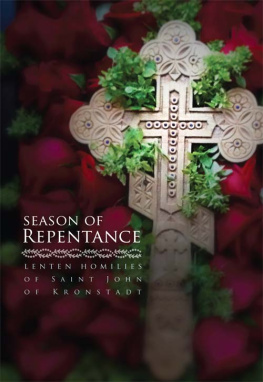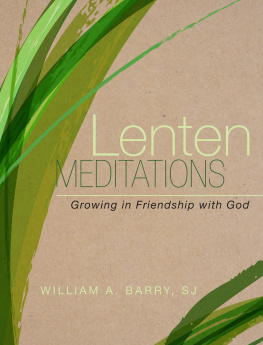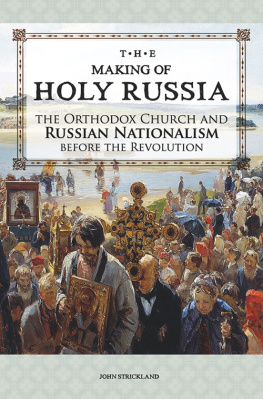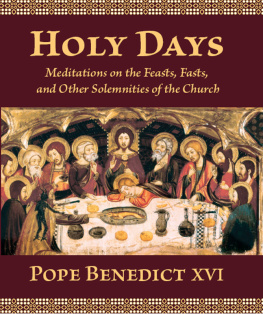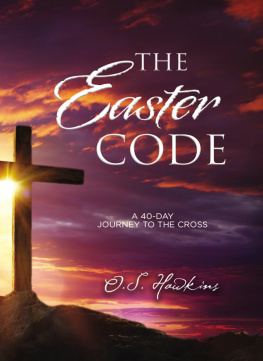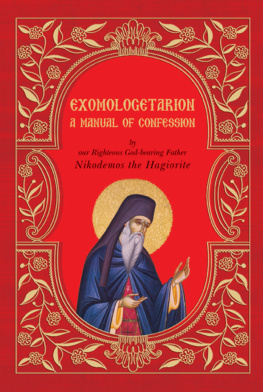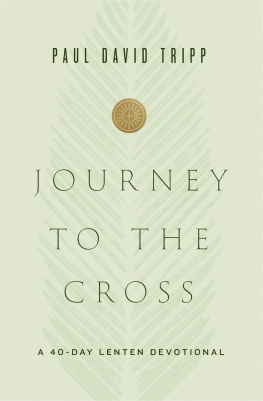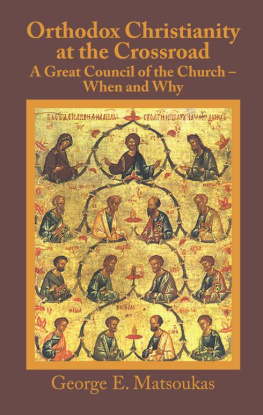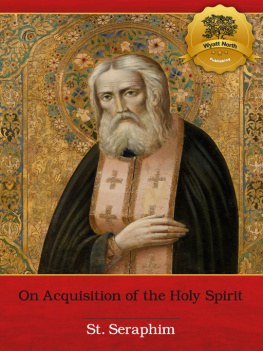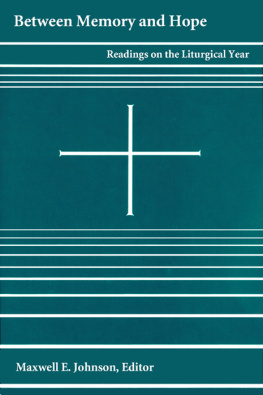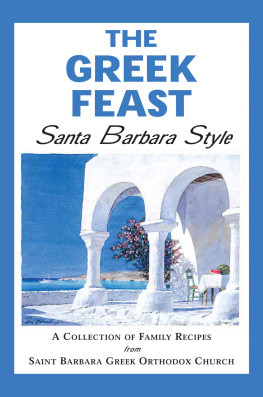Season of Repentance
Lenten Homilies
of Saint John of Kronstadt
Saint John of Kronstadt
(Ivan Ilyich Sergiev)
Translated by
Sergio Tancredo Sette Cmara e Silva
Holy Trinity Publications
The Printshop of St Job of Pochaev
Holy Trinity Monastery
Jordanville, New York
2015

Printed with the blessing of His Eminence, Metropolitan Hilarion First Hierarch of the Russian Orthodox Church Outside of Russia

Season of Repentance: Lenten Homilies of St John of Kronstadt
2015 Holy Trinity Monastery

HOLY TRINITY PUBLICATIONS
The Printshop of St Job of Pochaev
Holy Trinity Monastery
Jordanville, New York 13361-0036
www.holytrinitypublications.com
ISBN: 978-0-88465-389-9 (hardback)
ISBN: 978-0-88465-384-4 (paperback)
ISBN: 978-0-88465-393-6 (ePub)
ISBN: 978-0-88465-394-3 (Mobipocket)
Library of Congress Control Number 2014955762
Cover Design: James Bozeman
Photo 2014 Kelleylynn Rainville Barberg
Scripture passages taken from the New King James Version.
Copyright 1982 by Thomas Nelson, Inc. Used by permission.
Deuterocanonical passages taken from the Orthodox Study Bible.
Copyright 2008 by Thomas Nelson, Inc. Used by permission.
Psalms taken from A Psalter for Prayer, trans. David James
(Jordanville, N.Y.: Holy Trinity Publications, 2011).
All rights reserved.
Printed in the United States of America
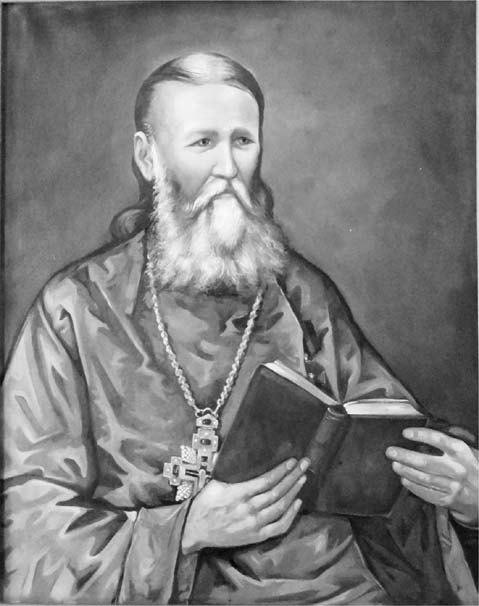
Saint John of Kronstadt
Oil on Canvas: Archimandrite Cyprian (Pyzhov)
Introduction

S t John of Kronstadt (18291908) is the most renowned saint of the Orthodox Church in Russia in the half century leading up to the Bolshevik Revolution of 1917. He was born Ivan Ilyich Sergiev, in the small town of Sura near the White Sea coast of northern Russia. He received a vision during childhood and was called to service in the Church as a priest. In addition, he was miraculously healed of early learning disabilities. His life and preaching went on to touch millions, not only in Kronstadt, the Imperial Naval port by St Petersburg where his parish was found, but throughout the Russian Empire and even into the Western world.
The extent of the wider worlds awareness of St John of Kronstadt is evidenced in the writings of Andrew Dickson White, the co-founder and first President of Cornell University in Ithaca, New York. In 1892 White became the American First Minister to Russia and referred to learning more about Father Ivan as a matter of special interest. This extract from Whites memoirs offers a vivid description of the future saints life and ministry:
There is at present on the island of Cronstadt [Kronstadt], at the mouth of the Neva, a Russo-Greek priest, Father Ivan [John], who enjoys throughout the empire a vast reputation as a saintly worker of miracles. This priest has a very spiritual and kindly face; is known to receive vast sums for the poor, which he distributes among them while he himself remains in poverty; and is supposed not merely by members of the Russo-Greek Church, but by those of other religious bodies, to work frequently miracles of healing. I was assured by persons of the highest characterand those not only Russo-Greek churchmen, but Roman Catholics and Anglicansthat there could be no doubt as to the reality of these miracles, and various examples were given to me. So great is Father Ivans reputation in this respect that he is in constant demand in all parts of the empire, and was even summoned to Livadia [the summer home in the Crimea of the Russian imperial family] during the last illness of the late Emperor [Tsar Alexander III]. Whenever he appears in public, great crowds surround him seeking to touch the hem of his garment. His picture is to be seen with the portraits of the saints in vast numbers of Russian homes, from the palaces of the highest nobles to the cottages of the humblest peasants.
To twenty-first-century Christians, St John is probably best known through his spiritual journals, My Life in Christ, published by this monastery in English translation. We are now pleased to offer this selection of his Lenten sermons in English translation for the first time, which we hope will equally touch the lives of many.

Andrew Dickson White, Autobiography of Andrew D. White, vol. II (New York: The Century Co., 1905).
H OMILY 1

On the Sunday of the Publican and the Pharisee
The Pharisee stood and prayed thus with himself, God, I thank You that I am not like other menextortioners, unjust, adulterers, or even as this tax collector[publican]. (Luke 18:11)
B eing teachers of the faith among the Jewish people, the Pharisees were praised for their knowledge of the Law and were, at the same time, the ones who dishonored God the most by transgressing the Law and by their extreme hypocrisy. The Saviour showed his understanding of them very well when He said that they love to take the highest seats at the synagogues and to be greeted in the market. This unfortunate passion of self-exaltation originated in them because of a false exaggeration of their own merits for, as public teachers of the faith, they knew well the Mosaic Law, which many Jews did not know. The tax collectors, according to their rank, very often resorted to illegal means of extortion. In the Gospel we see the amazing example of humility and self-sacrifice of Zacchaeus, who was a chief tax collector. When the Saviour came to his house, Zacchaeus, feeling a deep sense of repentance, told the Lord: Look, Lord, I give half of my goods to the poor; and if I have taken anything from anyone by false accusation, I restore fourfold (Luke 19:8).
Pharisees and tax collectors, not in name, but according to their deeds, exist even in our time. The passion of self-exaltation and self-praise to this day reigns among the children of fallen Adam. Heeding the call of our Mother, the Church, let us discuss how dangerous this passion is and what can move us toward humility. Where does the passion of self-exaltation and self-praise in us come from? It comes from the same source where all of our sins originate: from the first, ancestral sin. Man was created in order to love God, as He was the cause of mans being, and in order to contemplate Gods perfection and to imitate Him, faithfully fulfilling His will. But man loved himself more than he loved God, and desired to usurp His perfection, to be as great as God, and to be his own master; thus, he subjected himself to self-love and pride, and he fell. Therefore, self-exaltation, or pride, is a passion that is spiritually fatal to man, which makes him hostile to God and contemptuous toward his neighbors. Can God look with favor toward a creature who puffs up his own perfections and finds no equal to them, as if we had something that is actually our own?

